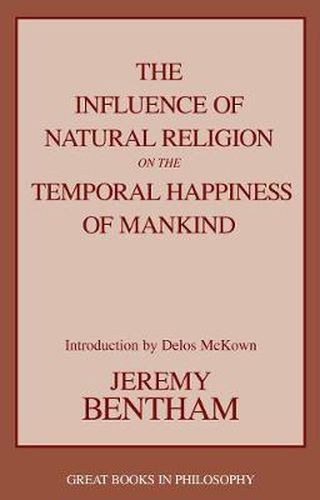Readings Newsletter
Become a Readings Member to make your shopping experience even easier.
Sign in or sign up for free!
You’re not far away from qualifying for FREE standard shipping within Australia
You’ve qualified for FREE standard shipping within Australia
The cart is loading…






This little-known work by Jeremy Bentham, the great English philosopher and originator of utilitarianism, was considered so controversial in its time that it was first published in 1822 under the pseudonym of ‘Philip Beauchamp’. The focus of this critical treatise is ‘natural religion’, a school of thought that maintained one could use human reason alone, unaided by faith, to deduce the will of God from the natural order. As the creator of a system that defined human happiness in terms of a moral calculus based on pleasure and pain, Bentham was quite sceptical of all claims of religion. Thus, it is not surprising that the results of Bentham’s analysis of the influence of natural religion on human happiness are decidedly negative. At a time when the Anglican Church was still a highly influential institution in English society, it is easy to understand how this work would have been considered controversial.
$9.00 standard shipping within Australia
FREE standard shipping within Australia for orders over $100.00
Express & International shipping calculated at checkout
This little-known work by Jeremy Bentham, the great English philosopher and originator of utilitarianism, was considered so controversial in its time that it was first published in 1822 under the pseudonym of ‘Philip Beauchamp’. The focus of this critical treatise is ‘natural religion’, a school of thought that maintained one could use human reason alone, unaided by faith, to deduce the will of God from the natural order. As the creator of a system that defined human happiness in terms of a moral calculus based on pleasure and pain, Bentham was quite sceptical of all claims of religion. Thus, it is not surprising that the results of Bentham’s analysis of the influence of natural religion on human happiness are decidedly negative. At a time when the Anglican Church was still a highly influential institution in English society, it is easy to understand how this work would have been considered controversial.